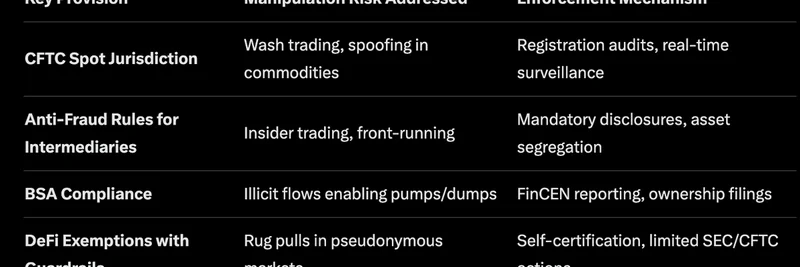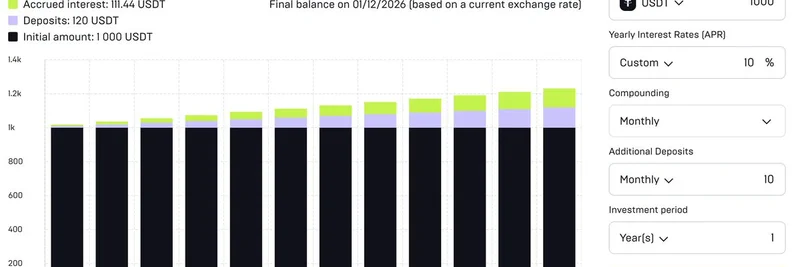If
- The main post highlights the #Clarity Act as a bipartisan bill establishing a federal framework for digital assets, clarifying SEC and CFTC roles, and tackling fraud in crypto markets.
you're knee-deep in meme tokens like $PEPE or $DOGE, you've probably felt the wild swings from shady trading tricks. Wash trading inflating volumes, spoofing to fake demand—it's all too common in crypto's Wild West. But a new bipartisan bill, the Digital Asset Market Clarity Act of 2025 (aka the #ClarityAct), aims to clean house. Shared in a viral thread by crypto commentator MartyParty, it spells out how regulators like the CFTC and SEC will finally get teeth to bite back against manipulation.
At its core, the Clarity Act draws a clear line in the sand: The Commodity Futures Trading Commission (CFTC) takes the wheel for "digital commodities" like Bitcoin or Ethereum—think spot markets where everyday trading happens. Meanwhile, the Securities and Exchange Commission (SEC) sticks to security-like tokens that promise returns. This split ends the endless "regulation by lawsuit" drama that's bogged down innovation, especially for decentralized projects.
But the real juice? It's in the anti-manipulation toolkit. Here's the tweet's handy breakdown visualized in a table—straight from MartyParty's post:
Let's unpack this simply. Starting with CFTC Spot Jurisdiction: Right now, spot crypto trading (buying and selling actual coins) flies under weak oversight, letting bad actors spoof orders or wash trade to pump fake hype. The Act hands the CFTC full power here, mandating real-time surveillance and registration audits for exchanges. Imagine platforms like Binance needing to prove clean books or risk delisting—game over for ghost liquidity that tricks retail traders into overpaying for meme pumps.
Next, Anti-Fraud Rules for Intermediaries: Front-running (sniping trades before you) and insider tips have wrecked trust. The bill requires mandatory disclosures and asset segregation, so your funds can't get commingled with shady ops. For meme token hunters, this means fewer rug pulls where devs dump holdings anonymously—platforms must track 5%+ owners, shining a light on whale games.
Don't sleep on BSA Compliance either. Under the Bank Secrecy Act, crypto spots become financial institutions, feeding data to FinCEN for illicit flow tracking. Pump-and-dump schemes fueled by dirty money? They'll get sniffed out faster, protecting the little guy chasing viral tokens on Solana or Base.
And for DeFi die-hards, DeFi Exemptions with Guardrails offer a carve-out for truly decentralized protocols—no middlemen, no problem. But if you're running a liquidity pool that smells like a centralized exchange, expect self-certification and limited SEC/CFTC scrutiny to keep rug pulls in anonymous markets at bay.
A standout reply in the thread from Shanaka Anslem Perera nails the ripple effects: Expect 20-40% volume drops as fake trades vanish, wider spreads for honest price discovery, and a boon for compliant assets like BTC/ETH. Meme tokens hooked on wash farms? They might lose U.S. access, forcing the space to mature or migrate offshore. Watch metrics like cancel-to-trade ratios and proof-of-reserves attestations to gauge the shift.
Bottom line: This isn't about killing the vibe—it's upgrading crypto from casino to capital market. For meme insiders, it means safer bets on the next big narrative without the manipulation minefield. As MartyParty puts it, "Clarity doesn’t pump prices … it cuts noise." Stay tuned; if passed, your portfolio could thank you.


